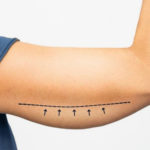The dietary needs of Poodles vary at different life stages, and their nutrition requirements change as they grow. It’s important to provide a balanced diet to meet their unique needs.
Pay close attention to the first year, especially when they are under one year old. During this delicate phase, their digestive system is still developing, so proper nutrition is crucial. If you’re looking for age-specific feeding guidelines for your Poodle, you’ve come to the right place!
Related:
1 Nutrition for Poodles Aged 2 to 3 Months
Between two and three months of age, Poodles typically wean off their mother’s milk and can be separated from the litter. When you bring your new Poodle home, remember to ask the previous owner about their feeding habits to ensure a smooth transition.
 Nutrition for 2- to 3-Month-Old Poodles
Nutrition for 2- to 3-Month-Old Poodles
To help your Poodle adjust, gradually introduce new food while reducing the old diet over a period of several weeks:
During the second week, offer a mix of 50% old food and 50% new food. In the third week, increase the ratio to 75% new food and 25% old food. By the fourth week, your Poodle should be comfortably eating the new diet exclusively.

A balanced diet for a 2- to 3-month-old Poodle includes both fresh food and milk. For fresh food, prepare lightly cooked meals, and you can enhance the flavor by boiling bones and making a broth.
It’s best to feed your Poodle multiple small meals throughout the day, approximately 5 meals spaced evenly. Avoid overfeeding in a single sitting, as it may cause digestive issues.
Avoid the following in your Poodle’s diet during this stage:
– Raw meat, fish, or eggs, as they can cause diarrhea.
– Spicy foods such as chilies, onions, and garlic.
– Sweet treats like chocolate, candy, ice cream, and cakes.
– Spoiled, moldy, or expired food.
2 Nutrition for Poodles Aged 3 to 6 Months
At this stage, their digestive system is still maturing, so avoid feeding them adult dog food. The most common diet for small dogs during this period includes a mix of rice or pasta for carbohydrates, along with protein sources like chicken, beef, and fish. Include calcium, phosphorus, and vitamin D supplements to support bone development.

Note: Continue to blend or puree the food during this time to aid digestion and ease the transition to solid food.
Additionally, offer a cup of milk daily to provide extra nutrition and comfort, as they are still young and separated from their mother. Commercial wet food and dry kibble are also suitable options, which you can introduce alongside fresh food. For small dogs, it’s advisable to soften the kibble by soaking it beforehand.
If opting for dry food, ensure it’s moistened or soaked to make it easier for your Poodle to chew and digest.
3 Nutrition for Poodles Over 6 Months Old
Once your Poodle reaches this age, their digestive system is more robust, and you can reduce the frequency of meals while increasing the portion size and nutritional value. Continue to provide a balanced diet rich in calcium, protein, carbohydrates, and essential minerals.

It’s beneficial to incorporate pureed or finely chopped vegetables into their diet, as dogs don’t naturally gravitate towards plant-based foods. Mixing vegetables with their regular food ensures they receive the full nutritional benefits without noticing the addition.

Treats and rewards are also an option when training your Poodle or as an occasional indulgence.
4 What Should Poodles Avoid Eating?
The following foods should be avoided to maintain your Poodle’s health and well-being:
– Food that is not fresh or properly stored can cause digestive issues and compromise your Poodle’s health.
– Extremely hot or cold food can irritate their stomach. If serving food from the refrigerator, let it warm to room temperature first.

– Sugary treats may lead to stomach upset and excessive tear production.
– Greasy, fatty foods can cause diarrhea and other digestive problems.
Related: Top Delicious and Affordable Dog Treats Your Pup Will Love
In conclusion, providing a well-balanced and age-appropriate diet is essential for your Poodle’s health and happiness. By following these guidelines and consulting with your veterinarian, you can ensure your furry friend receives the nutrition they need at every life stage.





































